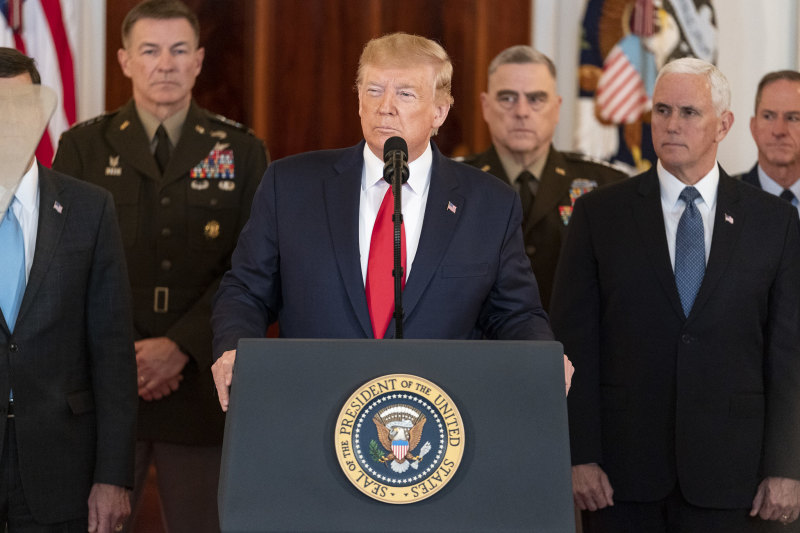
President Trump signed an executive order on Tuesday prioritizing the advancement of international religious freedom. Trump visited the National Shrine of the defender of religious freedom, Saint John Paul II, in Washington, D.C.
"Religious freedom, America's first freedom, is a moral and national security imperative. Religious freedom for all people worldwide is a foreign policy priority of the United States, and the United States will respect and vigorously promote this freedom," the executive order stated.
This executive order calls for the US to budget at least $50 million annually for the promotion and advancement of international religious freedom.
The order also gives Secretary of State, Mike Pompeo, 180 days to consult with the administrator of the U.S. Agency for International Development to "develop a plan to prioritize international religious freedom."
It also states that "countries of particular concern" for international religious freedom will get "comprehensive action plans to inform and support the efforts of the U.S. government."
To advance religious freedom in "countries of particular concern, the order also calls for the State Department to work with the Department of Treasury to develop "appropriate use of economic tools" like "increasing religious freedom programming, realigning foreign assistance to better reflect country circumstances, or restricting the issuance of visas."
President Trump is also ordering all State Department foreign affairs civil service employees to go through training every three years on international religious freedom.
Trump's order budgets at least $50 million per fiscal year for programs that "anticipate, prevent, and respond to attacks against individuals and groups on the basis of their religion" and those that "help ensure that such groups can persevere as distinct communities."
These programs should ultimately "ensure equal rights and legal protections for individuals and groups regardless of belief," "improve the safety and security of houses of worship and public spaces for all faiths" and "preserve the cultural heritages of religious communities."

















